Why is the CU so loath to punish errant BCL cadres?

The recent clashes between different factions of Bangladesh Chhatra League (BCL) in Chittagong University (CU) have once again shown how uncontrolled the ruling party's student wing has become thanks to continued tolerance of its crimes and excesses. These incidents involving the so-called Sixty-Nine and Choose Friends with Care (CFC) factions—the first claiming allegiance to former mayor AJM Nasir Uddin, and the latter to Education Minister Mohibul Hasan Chowdhury—saw scores of people including cops injured, some critically. At least 60 BCL cadres, according to a Prothom Alo report, have been seen brandishing machetes during the clashes.
This is what you would expect career thugs to do, and their garb of students sends a chilling message to both current and upcoming batches of ordinary students. The question is: why is the university administration so loath to punish these criminals, or so eager to protect their studentship?
Reportedly, the identity of eight such cadres has been confirmed from video footages and pictures as well as by talking to BCL insiders. One is Khaled Masud, a frequent machete wielder who was already expelled twice from the university for engaging in violence and beating up a journalist, with the expulsion orders withdrawn every time on "humanitarian grounds". Another is Arafat Raihan, who was also expelled for beating a journalist last year only to be reinstated mere months later. None of the other culprits, mostly repeat offenders, were also held accountable by the BCL or the CU administration, or even the country's criminal justice system, despite the gravity of their offences.
This is why we are doubtful whether the education minister's call for strict measures against those engaged in clashes will lead to any meaningful action this time. In his message to the CU vice-chancellor, he emphasised not sparing anyone responsible for the violence regardless of their political identity. If soon-to-be-withdrawn expulsion orders are all the university can do, more of such orders are nothing but a mockery of the disciplinary process.
These clashes and the various other crimes being committed by BCL cadres in CU, divided into about 11 camps, may have something to do with the absence of an official BCL committee there, but only just. For what good did a committee ever do in containing its unruly members? The fault then mostly lies with the carte balance given to BCL to do whatever they see fit to keep public universities under their thumb. And for that, the ruling party, including influential figures enabling the BCL, must take responsibility.
We urge the authorities to take meaningful action to stop its reign of terror in universities for the sake of general students.

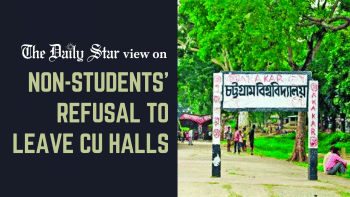
 For all latest news, follow The Daily Star's Google News channel.
For all latest news, follow The Daily Star's Google News channel. 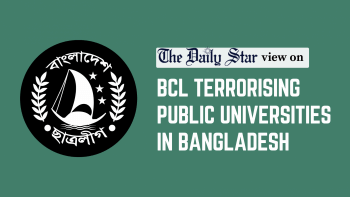
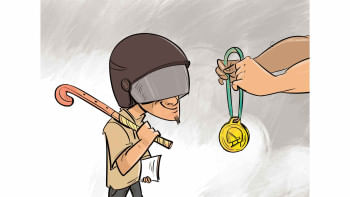
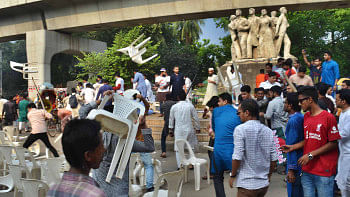



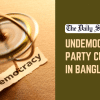





Comments